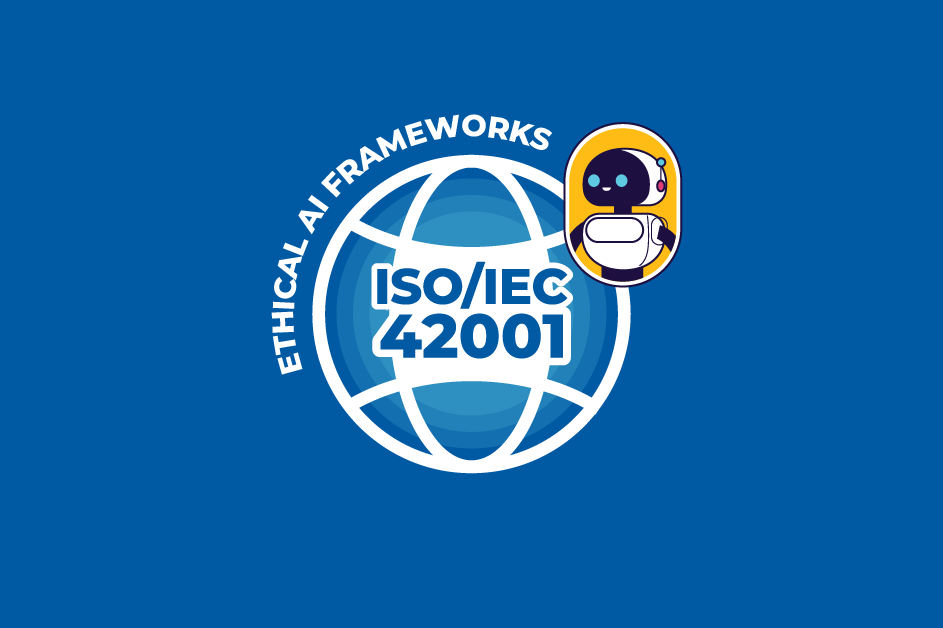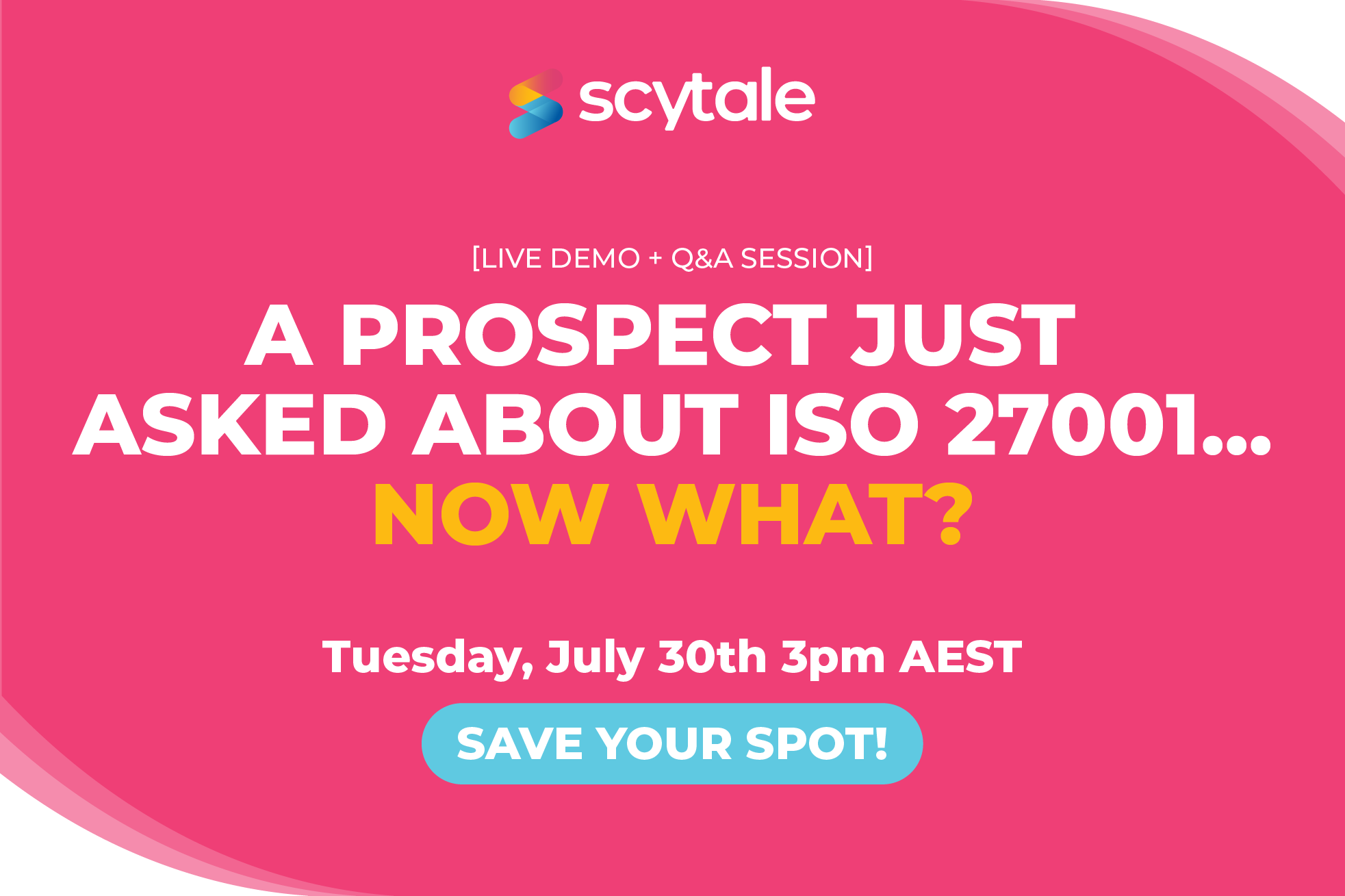Understanding ISO/IEC 42001
ISO/IEC 42001 provides guidance on building trust in AI systems. It offers a comprehensive framework that organizations can utilize to ensure the ethical and responsible development, deployment, and use of AI technologies. By emphasizing trustworthiness, ISO/IEC 42001 aims to address concerns related to transparency, accountability, fairness, reliability, and privacy in AI systems.
The Principles of Ethical AI in ISO/IEC 42001
ISO/IEC 42001 outlines several key principles that underpin ethical AI development:
- Transparency: AI systems should be transparent in their operations and decision-making processes, enabling stakeholders to understand how they work and the rationale behind their actions.
- Accountability: Organizations developing AI systems are accountable for their behavior and must be able to justify their decisions and actions.
- Fairness: AI systems should be designed and implemented in a manner that promotes fairness and prevents discrimination or bias against individuals or groups.
- Reliability: AI systems should consistently perform as expected within their intended scope and should be resilient to errors or adversarial attacks.
- Privacy: AI systems should respect individuals’ privacy rights and handle personal data in accordance with relevant privacy laws and regulations.
ISO 42001 vs Europe’s AI Act: How They Compare
The International Organization for Standardization (ISO) is renowned for its comprehensive standards across diverse industries. ISO 42001, specifically, pertains to AI and provides guidelines for the ethical design and development of AI systems. It emphasizes principles such as transparency, accountability, fairness, reliability, and privacy. One of its key strengths lies in its global applicability, providing a common ground for organizations worldwide to adhere to.
On the other hand, Europe’s AI Act represents a regulatory approach tailored to the European Union (EU) member states. Introduced by the European Commission, this legislative proposal aims to regulate AI applications within the EU. It categorizes AI systems into different risk levels, imposing stricter requirements on high-risk AI systems. The Act addresses various aspects, including data quality, transparency, human oversight, and conformity assessment.
| ISO 42001 | AI Act | |
| Scope and Applicability | ISO 42001 offers broad guidelines applicable globally | Europe’s AI Act is specific to the EU region |
| Risk-Based Approach | Both frameworks adopt a risk-based approach but differ in their categorization and treatment of AI systems based on risk levels. | |
| Legal Binding | ISO standards are voluntary | AI Act is legally binding within the EU, imposing legal obligations |
| Flexibility vs. Rigidity | ISO standards are designed to be flexible | AI Act provides a more rigid regulatory framework |
| Enforcement Mechanisms | ISO standards rely on voluntary adherence | AI Act includes enforcement mechanisms and penalties for non-compliance |
Ethical AI Frameworks and Their Broader Implications for Society
The ethical development and deployment of AI have far-reaching implications for society. Ethical AI frameworks, guided by standards like ISO/IEC 42001, help mitigate risks such as algorithmic bias, discrimination, and loss of privacy. Here’s how ethical frameworks, like the ISO/IEC 42001 standards, are making sure AI benefits everyone:
No Algorithm Bias
One big issue with AI is algorithmic bias. This happens when AI systems end up being unfair or discriminatory, often without anyone realizing it. Imagine an AI deciding who gets a job or a loan and being biased against certain groups of people. Ethical AI frameworks help us spot and fix these problems to make sure AI is fair for everyone.
Data Protection and Privacy
AI relies on massive amounts of data, which raises serious privacy concerns. How do we make the most of AI without sacrificing our privacy? Ethical AI frameworks stress the importance of data protection – using only what’s necessary, getting consent, and anonymizing data to keep people’s information safe.
Building Trust in AI
People need to trust AI if it’s going to be widely accepted and used. Ethical AI frameworks help build this trust by making AI systems more transparent and accountable. When we know how AI makes decisions and can ensure it’s being used responsibly, we’re more likely to trust and use it.
The Challenge of Implementing Ethical AI Frameworks
Implementing ethical AI frameworks can be a daunting task for organizations across industries. While there’s a growing recognition of the importance of ethical considerations in AI development and deployment, translating these principles into practical strategies can be complex. One of the significant challenges lies in navigating framework and regulatory requirements, industry standards, and evolving best practices.
Knowing How to Actually Comply
At the forefront of these challenges is actually complying with ethical AI frameworks and regulations. ISO 42001 provides detailed guidelines for organizations to ensure that their AI systems are designed, developed, and deployed in a manner that upholds ethical principles, respects human rights, and mitigates potential risks. However, achieving compliance with ISO 42001 requires a deep understanding of its requirements and how they apply to specific AI applications.
Need quick answers for questions relating to ISO 42001? Meet Scy – your go-to companion bot for all things ISO 42001 compliance.
The Role of Compliance Experts
This is where the expertise of compliance experts becomes indispensable. A compliance expert possesses the knowledge and experience to interpret regulatory guidelines and standards, assess their implications on AI projects, and develop tailored compliance strategies. They’re there to help organizations navigate the complexities of implementing ethical AI frameworks, ensuring that their systems meet the necessary requirements while aligning with their business objectives.
Benefits of Proactive Ethical AI Compliance
What’s more, a compliance expert can provide invaluable insights into emerging ethical AI trends and best practices, helping organizations stay ahead of the curve and adapt their strategies accordingly. Given the evolution of AI technologies and the increasing scrutiny around their ethical implications, having access to expert guidance is essential for maintaining compliance and mitigating reputational and legal risks.
The Future of Ethical AI Governance
As we look ahead, the future of ethical AI governance will depend on ongoing teamwork among policymakers, industry leaders, researchers, and civil society organizations. Developing and refining ethical AI frameworks, like those guided by standards such as ISO/IEC 42001, will keep evolving to match new tech advancements and societal needs. We’ll see a growing focus on blending ethical considerations right into the design, development, and deployment of AI systems.
Why We Need AI Experts
With AI tech becoming more advanced and widespread, there’s a huge need for experts to help us understand the ins and outs of different AI frameworks and regulations. These experts are key in turning abstract ethical principles into practical guidelines and making sure we stick to new standards. The AI governance landscape is always changing, driven by rapid tech advancements, shifting societal expectations, and evolving laws and frameworks. Organizations need to stay on top of these changes and adapt quickly.
Finding the Balance: Innovation vs. Regulation
One big challenge in ethical AI governance is finding the right balance between innovation and regulation. While it’s crucial to drive technological progress, it’s just as important to make sure AI systems are developed and used responsibly. This means understanding both the technical and ethical sides of AI. Experts in AI ethics, law, and policy offer valuable insights on how to navigate these complexities, helping organizations set up strong governance frameworks that minimize risks and maximize the benefits of AI.
Tackling Ethical Issues in AI
As AI gets more integrated into critical areas like healthcare, finance, and transportation, its potential impacts – both good and bad – grow. Ethical AI governance needs to tackle issues like bias, transparency, accountability, and privacy. For example, making sure AI systems don’t perpetuate existing biases or create new forms of discrimination is a major concern. Experts can help organizations conduct thorough impact assessments and develop strategies to tackle these ethical challenges.
The Need for Global AI Governance
The global nature of AI development means we need a harmonized approach to AI governance. Different countries and regions are creating their own rules and standards, which can lead to a fragmented landscape. Experts in international AI policy can help organizations understand and navigate these varied regulatory environments, promoting cross-border collaboration and the development of global standards.
The Power of Collaboration
Ethical AI governance also needs collaboration across different fields, like computer science, ethics, law, sociology, and economics. By encouraging dialogue and cooperation among these disciplines, we can develop more comprehensive and effective approaches to AI governance. Training programs that focus on interdisciplinary learning will be key in preparing the next generation of leaders in this field.
GET COMPLIANT 90% FASTER WITH AUTOMATION
Ethical AI Made Easy with Scytale on Your Side
ISO/IEC 42001 is making a big impact on how we think about ethical AI. It helps guide the development of AI systems that are transparent, accountable, fair, reliable, and respectful of privacy. Sure, there are challenges, like the technical hurdles and how to actually comply with these frameworks, but the potential benefits for society are huge.
That’s why at Scytale, we’re proud to say that we have a dedicated team of compliance experts who are committed to helping our customers navigate and streamline ethical AI. With a combination of our tech and team’s deep understanding of the framework’s requirements and industry best practices, we’ll ensure that your AI solutions meet the highest ethical standards.
Here are just some of the ways we make getting and staying compliant easier with ISO 42001:
- AI Compliance Management System: Get your internal controls categorized into practical to do items, which give you full visibility into your AI compliance status.
- Automated Evidence Collection: Say goodbye to manual, error-prone processes. Our platform automates the collection of necessary evidence.
- Continuous Monitoring: Stay ahead with real-time monitoring of compliance controls, ensuring that any deviations are promptly addressed.
- Policy Center: Tune & align AI policies and procedures with our comprehensive policy templates.
- Vendor Risk Management: Evaluate and monitor third-party risks seamlessly, a crucial aspect of AI governance.
- Multi-Framework Cross-Mapping: Navigate the complex web of compliance frameworks with ease by mapping controls across multiple standards, including ISO 42001.
By embracing standards like ISO/IEC 42001, you can ensure that AI technology grows in a way that’s not just smart, but also ethical and trustworthy. This is key to building a future where AI is safe, and beneficial for everyone.










